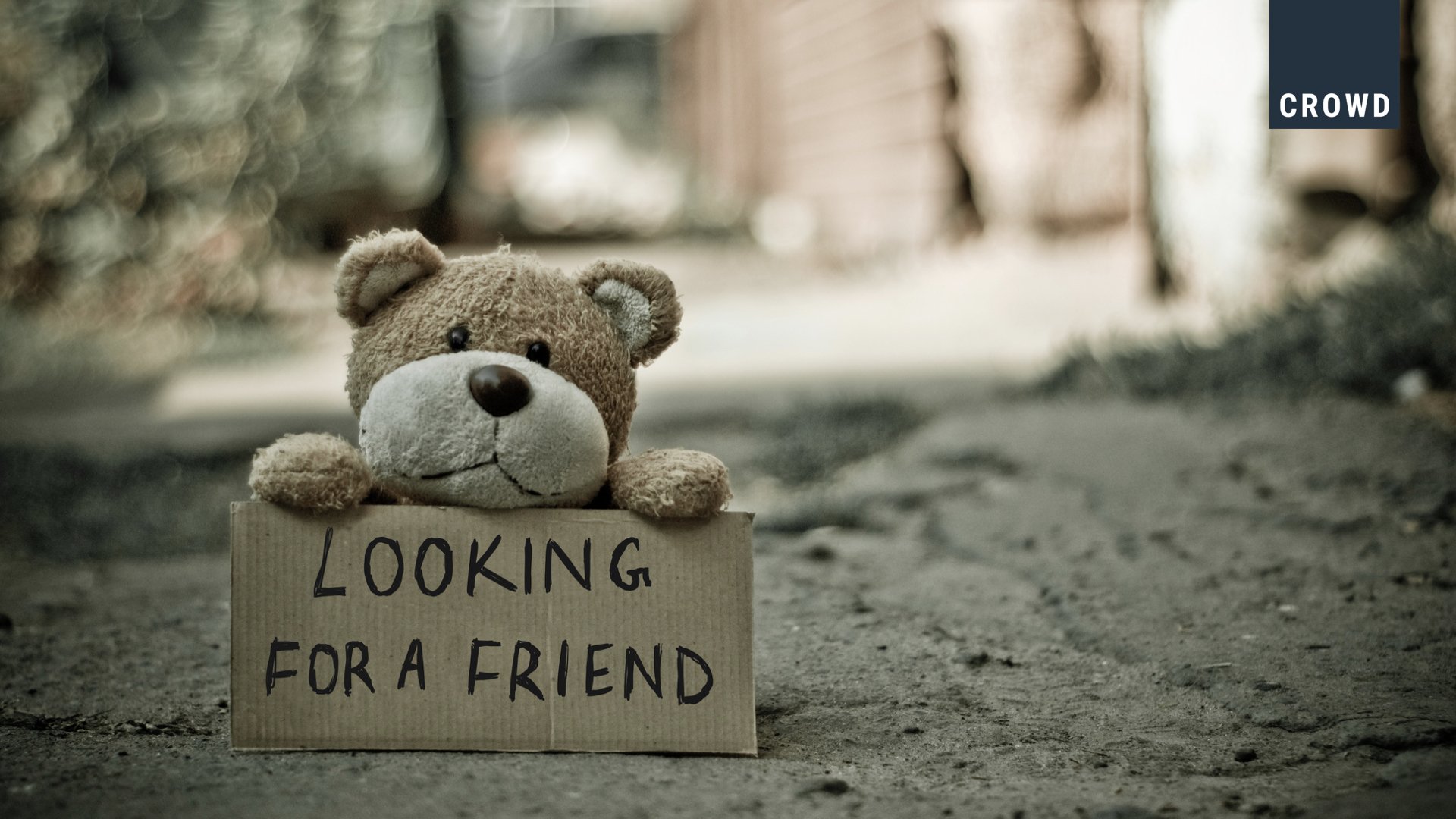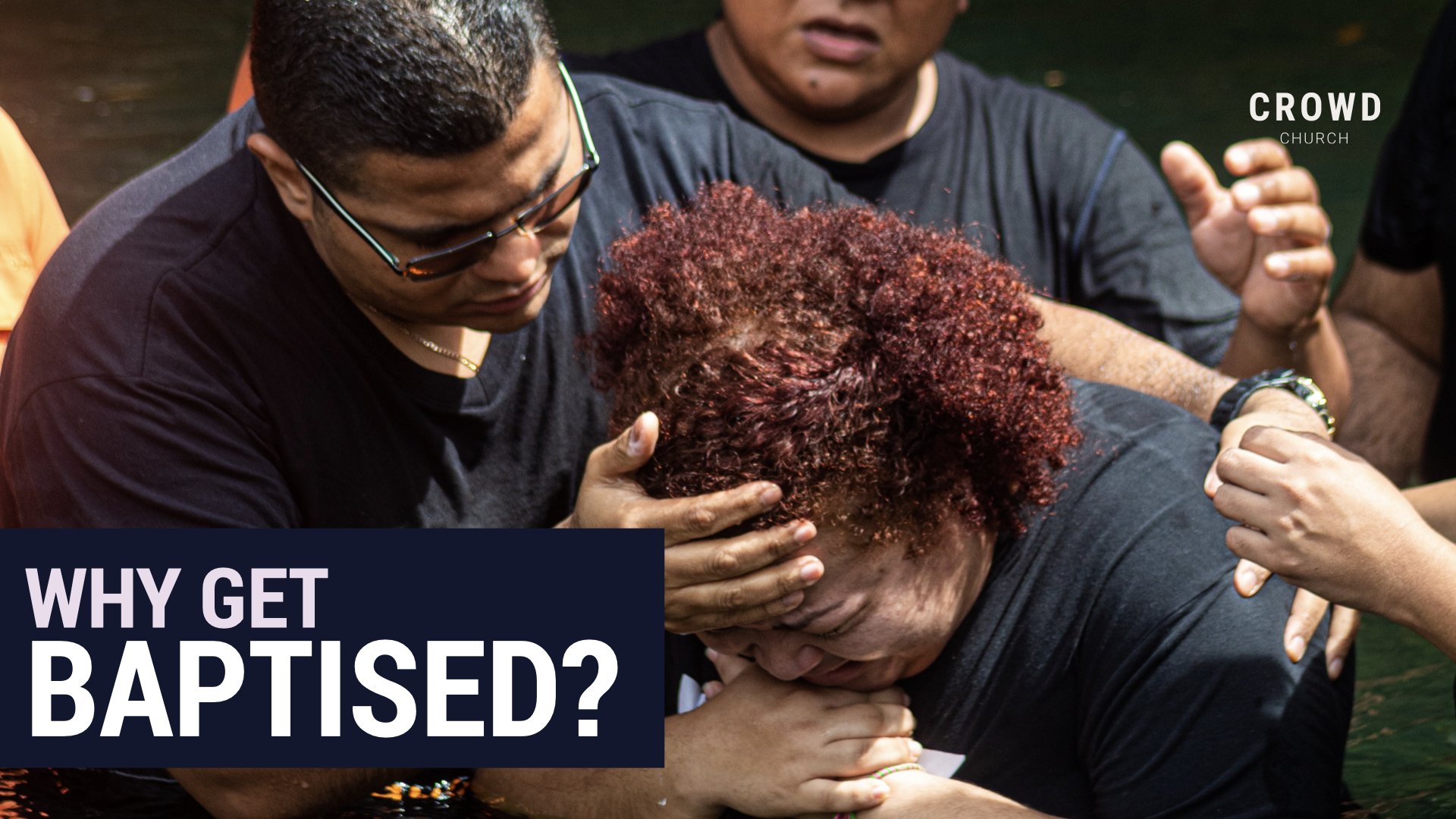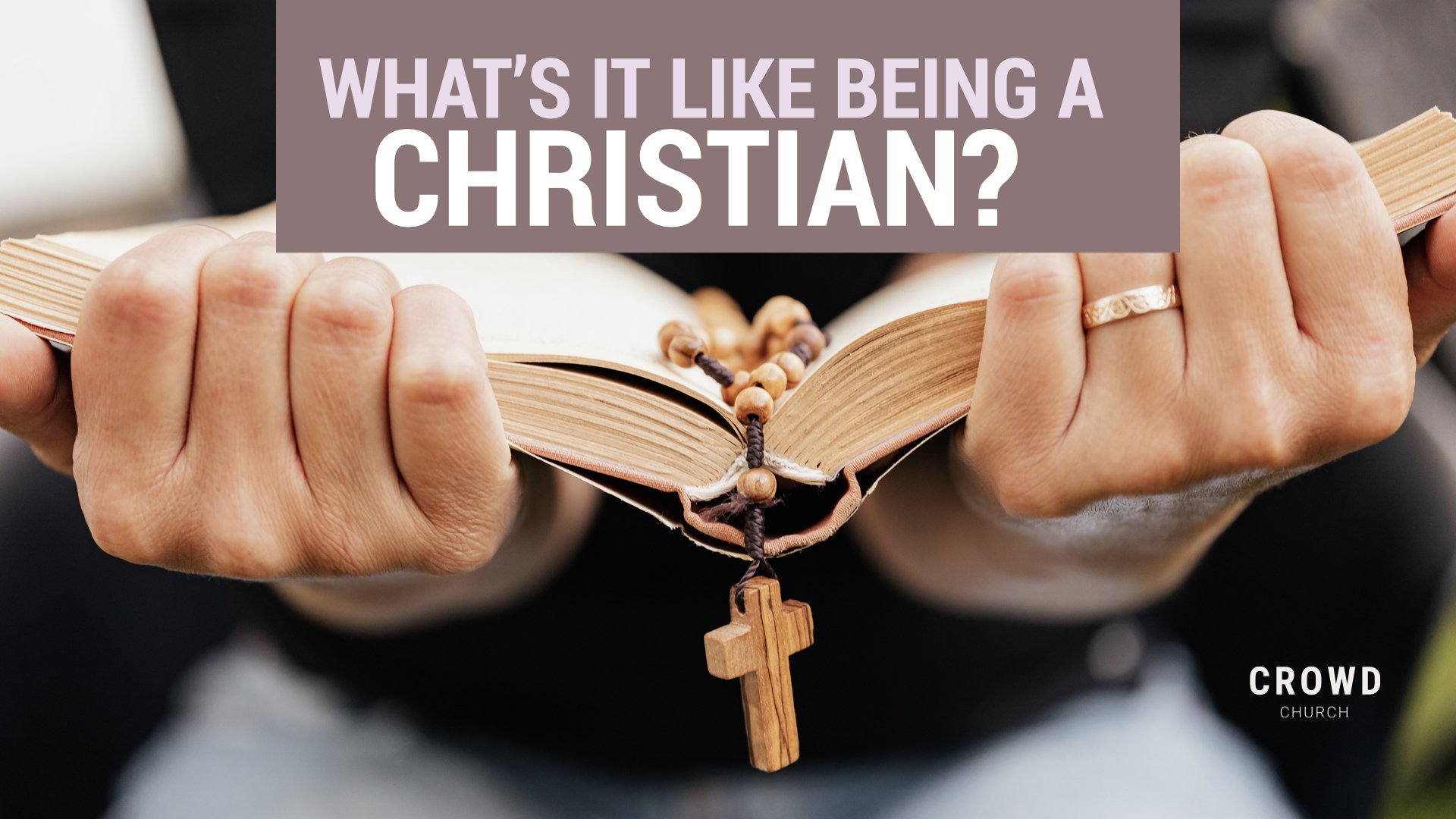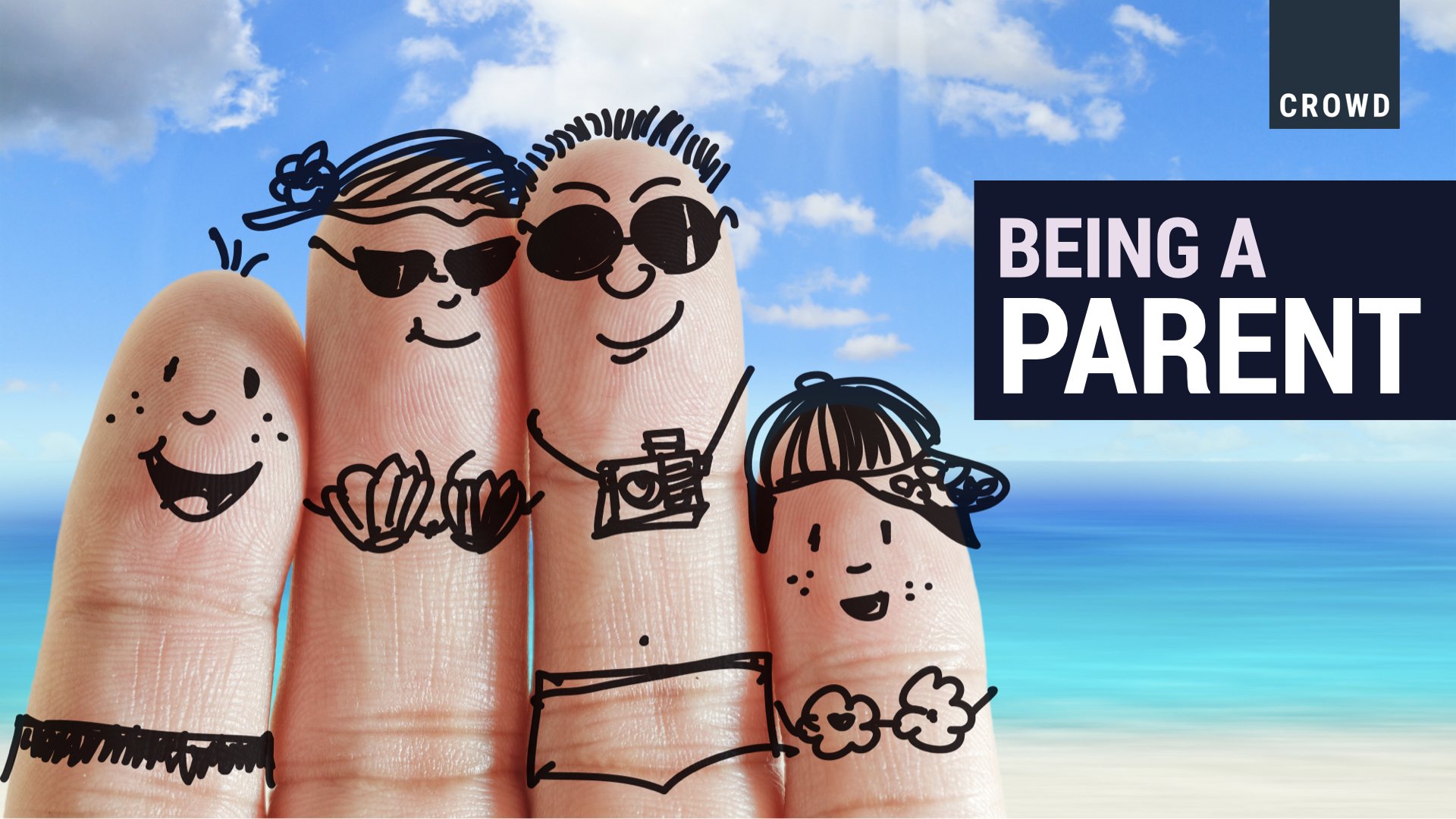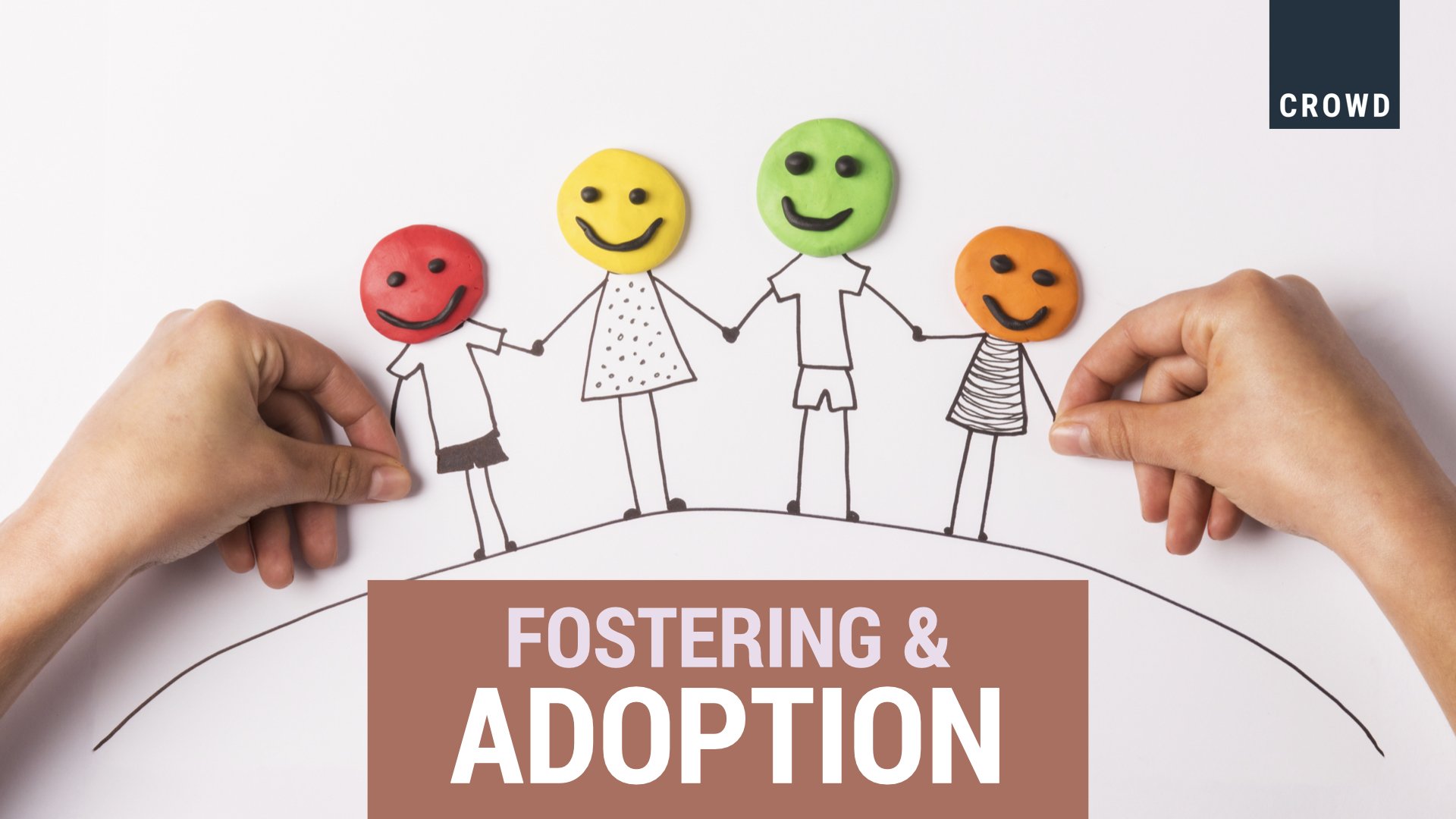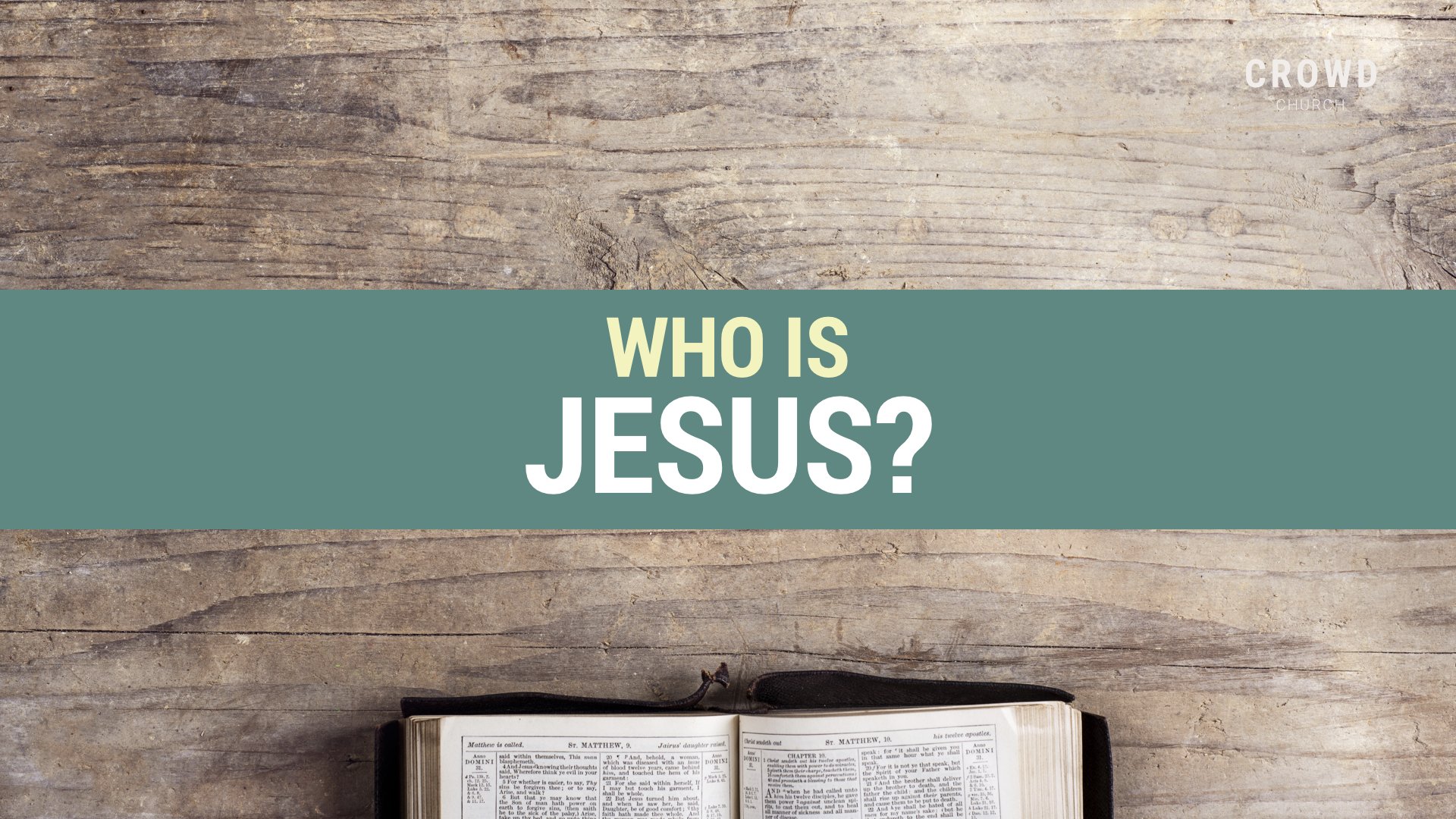What Does The Bible Say About Children?
Video Timeline
WELCOME
00:00 - Welcome with Matt & Sharon
TALK with Phil Watson
11:47 - What Does The Bible Say About Children?
CHRISTMAS CAROL
29:31 - O Come All Ye Faithful with Lyrics
CONVERSATION STREET with Matt & Sharon
32:19 - Conversation Street
CLOSING WORSHIP
01:05:08 - All The World Awaits with Lyrics
Podcast:
What does the Bible say about Children?
— Phil Watson
Hi everybody. My name is Phil, and I'm going to be talking today about what the Bible says about kids.
Away In A Manger
I'd like to start off by telling you about a row I had with my grandfather. I'm going to guess it was the mid to late 1980s. Now my granddad was born in 1901. So he was a Victorian, and was widowed for about 35 years. He was something called a Presbyterian, which I've since found out means he was a Christian, he was just quite an angry one. I don't know if that's true of all Presbyterians, but he was.
I wasn't a particularly easy teenager, and I decided to pick a fight because one Christmas Day, we'd been to church in the morning, (that was pretty normal for us) and we'd sung 'Away in a manger'. You probably sang it at primary school, you possibly have been to church on a Sunday at Christmas time and sung it. My point was, that "the little Lord Jesus", according to the song, "no crying he made", well my point was, there's no way that if Jesus was a little baby, and he was in a manger, which as I understood, was some sort of cowshed. So they were probably cold, a little bit damp, possibly hungry, there's no way Jesus wouldn't have cried.
So I started to say this out loud, and my grandfather being a certain man of a certain era, Victorian, said, "you need to listen to me because I'm your elder, you need to respect me because it says in the Bible, respect your mother and father". And it's true, it does say that. If I'd known my Bible a little bit better, as a teenager, I would have been able to say to him, it also says, parents, might have got this verse a little bit wrong, parents do not make your children angry.
The conclusion of this row was we just fell out. He was in a bad mood with me and I was in a bad mood with him. We probably marred Christmas Day somewhat for everybody else, and I probably should apologise to all the other people who were there.
Maintain The Relationship
My first point I want to make is, if you've got kids, maintain the relationship with them. Don't fall out, over, almost anything. If you can keep talking to them, if you can keep listening to them, you've always got a chance of repairing any fallout or riff that you have. Keep talking.
Fostering And Adoption
Anyway, a little bit more about me. I am a birth parent. So me and my wife have two kids of our own. We became foster carers about 11 years ago. Then, we adopted one of our foster kids. I'm also a secondary school teacher. I've done tonnes of kids and youth work in Liverpool where we live over the years.
One of the things that the Bible talks about very much is looking after the orphan. Old Testament and New Testament. There are so many verses. It would take me ages to go through them all. The one that I like the most is probably in the book of James, where it says, religion that God likes is where we look after the orphan and the widow.
In the United Kingdom, there are 107,000 kids in care. If you're interested in fostering, if you're interested in adoption, please get in touch with me. Even if you're not in Liverpool, it doesn't matter. I'd love to talk to you more about it. I really think God's heart is for looking after kids who've got no one to look after them. We call them orphans in a very sort of loose sense of the term. It doesn't necessarily mean their parents have passed away.
What Does The Bible Say About How To Raise Your Children?
You'd have thought with all my kids and youth experience I would know all about children and I'm afraid I don't. I get it wrong more times than I get it right. Children, forgive me. If I've taught you, forgive me. If I've parented you, forgive me. I asked my son, what was the stupidest thing I've ever said? And he went, "it's simple. The stupidest thing you've ever said, Dad, was when you were in an automatic and you didn't know how to drive it and you went, I don't know what I'm doing. I'm going to stall it." Apparently, you can't stall an automatic. I didn't know that. But he told me and he said, that was a stupidest thing I've ever said, which I thought was quite impressive.
Spend Time With Your Kids
Anyway, the Bible does tell us quite a lot about how to raise our kids. Some of the verses are cherry-picked a little bit out of context sometimes, in my opinion. The two I want to talk about today are one in Deuteronomy 6:7-8, where it says,
to teach your children diligently, to sit at home with them, be out and about with them, wherever you go with them, teach them.
“You shall teach them diligently to your children, and shall talk of them when you sit in your house, and when you walk by the way, and when you lie down, and when you rise. You shall bind them as a sign on your hand, and they shall be as frontlets between your eyes. ”
And the thing that I've picked up from that more than anything is spending time with your kids. Spend time where you're with them, doing what they want, maybe where they set the agenda a little bit, not just being in the same place. Never waste a car journey. If your child, whatever age they are, needs a lift somewhere, take them, chat with them, hear what they're thinking and talking about. Let them choose the music so you know what they're listening to. I've learned a lot about a Popstar called Dave, through one of my kids. Absolutely fantastic lyrics. A real insight into what he likes. Don't waste an opportunity to be with your children, whether it is watching their TV, watching their sport, playing games, board games, whatever it is, computer games. If you're not into Roblox or fortnight but your kid is, try and find out a little bit about it so that you understand where your kid's coming from.
Build Up Your Kids
There's another great verse in Ephesians 4. That's in the New Testament. It basically says, build people up with your words.
“Do not let any unwholesome talk come out of your mouths, but only what is helpful for building others up according to their needs, that it may benefit those who listen.”
I grew up in the '70s and '80s, where it wasn't very normal or traditional to say positive things about children. Somehow they thought it would make them arrogant. It's a bit like, going back my granddad who was born at the very end of the Victorian era, children are okay, but we don't want them to have too much of a role or to dictate things too much. And I can see where they're coming from. But at the same time, I'm not sure you can say enough positive things to a child about them, building up their self esteem and making them feel self-confident.
The Bible uses the word edifying, which means to build up. You're trying to create people who are comfortable with themselves, confident about themselves, that they know that you love them, and if you're Christian, that they know that God loves them as well. It really will help anybody go through life knowing they're loved.
That's one of the things we've both learned, me and my wife, about fostering and adoption is how many kids have absolutely no notion that anyone loves them. They've got a lot of evidence that suggests that no one loves them. Tell them you love them. If you're not happy telling them, write it down in a letter, and when they're old enough, give them the letter, or the letters. I do that for my kids because I'm not always the best at expressing how I feel about them. So, spend time with your kids. Try and say positive things to your kids.
Are There Any Other Instances Of Children In The Bible?
Now, kids are mentioned all the way through the Bible. There's a lot about children. One of the stories that I like the best is the feeding of the 5,000. You might know it. A bunch of people follow Jesus all day and they don't have anything to eat. There's no Subway, there's no Tesco Metro, there's no Londis. So they're all starving.
One little boy says, I've got my pack lunch. I'd love to know if he was on his own. Was he with his family? Well done for being so prepared. Do you think that he prepared it himself? Or do you think his mum sent it out with him? We've got two teenage sons. I cannot believe that they would have worked out that they needed a pack lunch, but then, you never know. Maybe I'm doing a disservice to this young lad who says to Jesus or the disciples, you can have my food. What a great sign of generosity. What a great kid. I'm sure Jesus would have sorted something out if that kid hadn't come forward with his offering of fish and loaves. But he did. His generosity enabled that miracle to happen. Never underestimate the power of a generous child.
What Does Jesus Say About Children?
There's another famous story in the Bible where loads of kids are wanting to come and be around Jesus. There's a horrible archaic translation, which says, suffer the little children, which is a really misleading phrase now because suffer means to experience pain but in those days, when that version was written, it meant allow.
So really what Jesus is saying is "allow". Let the kids come to me. There are a few things I want to say about that. First of all, in Jesus' time, children were fairly marginalised. It's a terrible patriarchy. There's men at the top, and there's women and children somewhere towards the bottom. Orphaned children and widows, so women without a man, are really low down. But time and time again Jesus elevates them, saying, no, everybody is important to me. Everybody. From the youngest child who's got no social power, because they're an orphan, right through to widows, who would also have no social capital. Jesus is very good at including strangers, foreigners, people who are outcasts. I could go on about that forever.
But anyway, he says, let these kids come to me. But now I want to turn that on its head a little bit and go great, allow children, let children, encourage children to be involved in whatever it is that you do. Whatever your church scenario you find yourself in, and family scenarios too, encourage the kids to be part of that.
What Was Jesus Like Around Children?
I wonder what kind of man Jesus was that the children wanted to be with this man. This is more of an observation, but what kind of people do kids want to be with? Well, they like being with people who they feel safe with. I think a lot of kids (though not all), have a discernment as to who's safe. They want to be with people who are fun, and they want to be with people who are interested in them. I think there's a role model there for us all. It's Jesus. He's the role model for us to look up to. He probably also had a good sense of humour. I don't know if he laughed. I know he cried, but I don't know if he laughed. If kids wanted to be with him, I'm figuring that he did. I reckon that he had a real interest in the way he spoke to them, I'm guessing, with a degree of respect. I think we need to make sure that we communicate with our kids in the same way.
Who Does The Kingdom Of Heaven Belong To?
I'd like to end by talking about a very famous verse from the Bible, where Jesus says, you need to have a childlike faith to enter the kingdom of heaven. This is the word childlike, not childish. If you're a child, you can be childish, but childish sounds a little bit immature. It sounds like you do silly things. You laugh at the wrong things perhaps. It's not the same as being childlike.
What does it mean to be childlike?
I'd like to give you an analogy about what I think childlike means. I've mentioned, possibly a few times with foster carers about one of the first kids we ever fostered who came to us. He was about three and a half. He'd been with us a couple of days, and we were beginning to get to know him very, very slowly. He was extremely cautious and nervous around us. He had very, very little language.
I took him to the park one day. It's only a few hundred yards and we walked there, and we got to the park. We were on the edge of the park, and he was staring at something. He went, "what's that?" He had a limited language. So I thought, oh he means, what is that? So I was looking at the park going, I wonder what it is. What is it that's exciting in this park? I realised he was kind of gesticulating, pointing at a tree. Ah, right, okay, it's a tree. So I said to him, "this is a tree". And he went "tree". And we walked up to it, and I touched it, and I rubbed it. He didn't do that though. He was scared of this tree. Then he tentatively put out his hand because I'd done it. He touched the tree. And he went "tree". He kind of flinched, because the bark is quite a sharp feeling, isn't it? He'd obviously never, ever seen a tree. He'd never touched a tree. It just makes you wonder where he'd been for the first three and a half years of his life. He spent 20 minutes with me patting the tree, touching it. We even sniffed it. He didn't lick it. I don't think. We were looking at the twigs and the leaves because it was November so they had fallen around the tree. We looked at them and we sniffed them, and we felt what they were like. He had this incredible sense of awe and wonder.
I've never seen anything quite like it because from his world, this was just amazing. This was unfathomable. This was incredible. Yet, there it was. It was true. There was a tree. We walked on a little bit further. Guess what? There was another tree. So we spent some time patting that, and we didn't carry on going around the whole park, because there were several thousand trees, and we'd still be there now, but he put his hand in mine, his little hand, and we walked home. There's an analogy there about him trusting me. I'm not gonna pretend that I'm God or Jesus. He also couldn't remember my name, by the way. He didn't know what to call me, but he'd known me enough and still trusted me enough to hold my hand and walk home.
I Am A Child Of God
I think if you went to court, and I'm not a lawyer, and said, is there evidence for Christianity being true or false? You'd struggle to prove it either way, in a court of law, because it comes down to a matter of faith. Like that little boy, just seeing it, trusting it and believing it. I'm not sure if that analogy will work for everybody but it kind of works for me because I saw it. And I just went, "Oh my word". He's never seen that before. Now he knows it's true. Now he's seen it, he's seen that tree.
Now. I'm going to end this talk with the last verse or the last line, which is "I am a child of God", which kind of links in with what I've said. I know I've perhaps emphasised some of this for people who have got children, whether their birth, fostered, adopted. You may or may not have children, but you were at least a child yourself once, to somebody somewhere. But the Bible says that we are all children of God.
I firmly believe that the story of Christianity is for every human being. I think there's 7.3 billion of us on the planet at the moment. Every one of us is a child of God. If you want to find out more about what that means then get in touch with CROWD church, or if you're watching, ask somebody you know who is a Christian. Thanks for listening. I hope it made sense. I enjoyed myself anyway.
CONVERSATION STREET
With: Matt & Sharon Edmundson.
What is Conversation Street?
Conversation Street is part of our live stream, where the hosts (in this case, Matt & Sharon) chat through Phil’s talk and answer questions that were sent in through the live stream. To watch the conversation now, click here.
Matt: You know when Phil said in his talk, you can't give kids too much positive praise? I thought that was a really interesting statement to make because in my head, the first thing that I thought of was those parents who took their kids to a show like Britain's Got Talent or something like that, and they've gone, "you have got the voice of an angel". You will make angels weep when you sing on the stage in front of Cowell and all those people. Then it turns out their voices, do make angels weep, but for entirely the wrong reasons.
Sharon: I guess in that scenario, though, the praise wasn't actually true, was it? I think there must be an element of truth in what you're saying, surely?
Matt: Very true. Yes. There has to be an element of truth in the praise.
Sharon: All truth, maybe.
Matt: Yeah, let's just stick with truth. Full stop. Of course, that leads us to ask the question, what is truth? But that is probably beyond the scope of this week's live stream.
So it is the first weekend of December and at the very heart of the Christian story, at the very heart of Christmas is this whole idea that God is amongst us. He is Immanuel. God came down to earth as a human being, but started that life off as a baby amongst us and this is why we thought maybe this is a really interesting topic to do now.
Do You Think Baby Jesus Cried?
Sharon: I think probably yeah. The Bible doesn't say he didn't, does it?
I do think it's a pretty amazing thing, though, that the creator of the world who is powerful enough to fling the stars into space came to earth as a helpless baby. Today in church, we were singing a song which talked about Jesus, and described him as being like a lion, but also like a lamb. It reminded me of Christ's birth in that he's like a lion, in that he is so powerful, but he's like a lamb, in that he comes in humility, and you've got these two things going on at the same time.
Matt: Really interesting contrast, isn't it? Jesus was both man, He is God, but he also came as a baby. It's one of these amazing things about the Christmas story. Phil's commented saying, "kids sniff out fake praise".
Sharon: They do.
Matt: They really, really do. Certainly our kids do anyway.
Before the livestream started, we were talking about this idea of balance. Let's address that issue.
What Do You Mean By Balance?
Sharon: I think that the Bible brings balance into a lot of areas of life. With kids, we can go to two extremes. We can either make them like God and worship them so that they become our world, or we can go to the opposite extreme where we disregard them making them insignificant not worth our time. The Bible brings balance to that though. It doesn't let us make kids our God because God is meant to be number on. He comes before every other relationship. At the same time, it talks about how each person is made in the image of God. It even talks about a baby in the womb and how God sees that baby, and how God knits together that baby in the womb. I think it helps us to avoid two extremes, but also helps us to see kids as a good and positive thing. We're there to nurture and to train and to love.
Matt: I think it's an important point to make because in the culture of today, where there is a whole idolisation of kids. I grew up in the 1980s and it was very different then to what it is now, and quite rightly so. Times do move on and things do develop, but I think the way we venerate kids now is very different to how it was when I grew up. I'm not saying we were always right, but I do think today's society has gone too far on this ocassion. It's good to bring that balance back. Conversely, like you say, there are cultures that place no value on a kid's life.
Sharon: As well, in some cultures, part of the worth of a woman is to do with if she has children. If you haven't got children, you can be seen as less than, but again, especially in the New Testament, we see how a woman's value is about being created in the image of God, not through anything else. It helps to just bring a little bit of balance there as well. It's saying, yeah, kids are a blessing, they are a good thing, but if you can't have kids as a woman, that doesn't mean that you're less than somebody else.
Matt: Absolutely. One of the questions is,
Does The Bible Say That Children Really Are A Blessing?
I thought that was quite a funny question.
Sharon: Sometimes it might not feel like they are.
Matt: It says in Psalm 127:3,
Don't you see that children are God's best gift? The fruit of the womb is his generous legacy. (The Message)
I think this is a really interesting way to put it. Children are God's best gift. Do you think that's right?
Sharon: Well, if it's in the Bible, I'm going with it. Yeah, I guess it's partly down to wording isn't it and how it's translated but, yeah.
Matt: I think the sentiment is there, isn't it? Kids are this amazing gift from God to people. I when our kids were born, I don't know about you, babe, but my outlook on life changed a lot. I was very aware of this little bundle of life that I had in my hands. At that moment, I was convinced that they are a gift from God...most of the time.
Sharon: I'm always convinced they're a gift, but at times it didn't always feel like it.
Matt: They're awesome now.
Sharon: They were fabulous then.
The Bible is clear that children should obey their parents.
Matt: Ephesians 6:1-3.
Children, do what your parents tell you. This is only right. Honour your father and mother is the first commandment that has a promise attached to it, namely, so you will live well and have a long life. (The Message)
Now that's a loaded scripture right there, right? Any thoughts on that? I'm going to put that in the comments while you share your thoughts.
Sharon: Again, I think we need context for this verse. The context of this, is that the parents are doing what their responsibility is. I think the Bible talks about the responsibility of parents, but also the responsibility of children.
The responsibility of the parents is to love their children, and to train them up in the ways of God, to lead them to God and to show him their ways. It is not to aggravate them and not to make them angry as the other verse says. Then, it's the responsibility of the children to listen to that and obey. There are many situations where you have parents who are not doing that, and who are being abusive or teaching their kids the wrong way.
There is actually another verse in the Bible, which I found today in Ezekiel 20:18-20. It's God talking to some children and saying to them,
Do not follow the statutes of your parents, or keep their laws, or defy yourselves with their idols. I am the Lord your God, follow my decrees and be careful to keep my laws. (NIV)
So that's a situation in which the parents are actually leading their kids away from God and away from his ways. In those situations, God's saying, keep in relationship with me, and follow what I'm saying. I don't think that's an excuse to disbey your parents though. It's not about what we like or don't like.
Matt: That's very good. You did steal my thunder slightly because although I would often quote to the kids, "children do what your parents tell you", the very next verse says,
Fathers, do not provoke your children to anger, lest they become discouraged. (Colossians 3:21 ESV).
I can't say that I've been particularly brilliant at not provoking my kids because why would you not do it? It's almost like a sport. But I do get the point that actually, it's radical for the New Testament to talk about children obeying their parents. Conversely, Paul is having a right go at dads, in two separate letters that he's writing in the New Testament going, "dads, stop provoking your kids. Stop." He's given them some clear and explicit instruction at a time where kids weren't seen as the most beautiful people on the planet. It's quite radical in its treatment of kids when Paul writes this.
Sharon: Yeah, Phil did bring that out, didn't he? The cultural background, and the father's dominance of the home. Everyone had to just do what he said. Again though, Paul's bringing more balance into that by giving the fathers a responsibility to their kids that they don't have to just obey the Dad, but the Dad has got to be good to them and not provoke them.
Matt: Okay, so one of the questions which came in is,
What Does Jesus Say About Children?
We've talked a little bit about the Bible. Obviously, what Jesus said is recorded in the Bible, but what specifically did Jesus say about kids? Phil touched on this a little bit. There's a few verses that came out where Jesus said, let the children come to me, or suffer the little children to me, I think was a verse that Phil quoted from the good old King James.
Let the children come to me, and do not hinder them, for to such belongs the kingdom of God. Truly, I say to you, whoever does not receive the kingdom of God like a child shall not enter it. (Luke 18:14,15 ESV).
That's quite an amazing thing for Jesus to say, isn't it?
Sharon: I was actually thinking of a different point that Phil pulled out on that one if you don't mind me going off track a little bit? He was talking about how children were attracted to Jesus, and that children aren't just attracted to anybody. That whole thing of Jesus must have surely been quite fun for them to be around him. I don't know if anyone's watched the series, The Chosen. You can download it on your phone as an app, and it's free to watch. There's one episode where it's mostly about Jesus interacting with children, and they do it so well, just bringing out that fun side of him, but also that kind of love. All the things that Phil mentioned in his talk, they bring out really well for the character of Jesus. It was an aspect I'd not really thought about before, but I was watching this guy, and it made you just want to be around him.
Matt: He's a great guy to be around.
Sharon: I've forgotten what question you originally asked me now, but I've taken it off track.
Matt: What do you think Jesus means when he says,
I say to you, whoever does not receive the kingdom of God like a child shall not enter it?
I mean, that's quite a bold statement to make.
Sharon: Yeah, it is, and it does make me think, what does that mean? It could mean, because children have got quite a simple faith in a way, so when they hear something, they believe it, and I think in that sense if God's saying something to us, we're to believe it. That's not to say that we're not to use our mind. Again, like Phil pointed out, the Bible also talks about loving God with your heart, your soul and your mind. So we're not to take our mind out, but we're to use it, but I do think that goes hand in hand with that simple faith. Okay God, you've said it so I'm going to trust you on that.
What are your thoughts on that?
Matt: Yeah, I'd say the same thing. I think it's that whole idea of being childlike. Not being childish, but being childlike. Sometimes you look at adults in life, and you feel like they've lost the wonder of childhood. Do you know what I mean?
Sharon: That's a good word. Wonder. The wonder of faith and the wonder of God.
Matt: When you're a kid, everything is just amazing, isn't it? Then, as we get older, we lose some of that and I wonder if Jesus is talking about that a little bit. It's pretty clear to me that Jesus is big on kids. He's valuing kids. He's telling the society at the time that doesn't value kids to value kids. So he says, if you're not like these children, you're not getting into Heaven. I think it's a pretty big deal to his audience who were trying to shoo them away at the time that Jesus was doing this. That's amazing because Jesus did that both with women and with kids. He continually validated people who society shunned, and I think that's amazing.
One of the things that Phil talked about was that Jesus was a great role model for the kids because he was safe, he was fun, and he was interested in them. I'm very intrigued into who my children's role models are in life.
What Do You Think About The Idea Of Role Models?
Sharon: Yeah, it's great to have role models, isn't it? Paul, who wrote a lot of the New Testament in the Bible talks about imitating him as he imitates Christ. So, we're meant to pass along to the generations below us what has been sowed into us as well.
Matt: It begs the question, am I a role model? Could I say, like Paul said, imitate me. I think one of the things that I've become aware of is people watch what you do. Kids watch what you do. They watch what you say, they watch how you act. I'm going to shame my parents lightly. I mean, my mum, especially, is wonderful. But mum would often say to me, "do as I say, don't do as I do". The problem is, you can't do that in reality because you are a role model. You are a role model to other kids and people do see that. They do watch you.
It reminds me of that phrase, it takes a village to raise a child. The kids see how everybody interacts with everybody. The stuff that you do actually makes a difference. I know it's a silly example, but one of the things that I was challenged about earlier was, if I'm stood at a crossing, and you're waiting for the lights to change, but there's a gap in the traffic, well quite often we'll just go, right? It's not a crime here in the UK, you just go. I'm not going to wait for the car. Why would I spend an extra 30 seconds waiting? But if there's a mum, with a young kid standing there at the lights, trying to teach their them to wait for the lights to change, and I just wander across? It's a silly little example, but I thought, you know what, I need to be a better role model. I actually need to wait the 20 seconds. It's not going to destroy my life. Maybe I just need to impart something here to this kid that I'll never see again.
This question comes from Sadaf. She is asking,
Why Does God Say He Will Hold Each Generation Accountable To The Third And Fourth Generation? What Does This Even Mean? Is The Fifth Generation Off The Hook?
From Exodus chapter 34:7. Go on babe.
Sharon: Thank you very much for that one. That is a great question. I would need to go and investigate a bit more to see. I guess my question in that would be, is it God saying that he's actively going to do that? Or is it just a natural consequence that when we sin, it doesn't just affect us, it affects the people around us as well? That would be where I'd want to investigate more.
Matt: It also implies in that scripture that actually what you do matters. How I parent my kids now not only matters to my kids, but it matters to my grandkids and my great grandkids in that, there's a knock on effect. We saw that really clearly with your family, didn't we? Your grandfather grew up in the war. There were things which happened that had implications and knock on effects in the family. I think that's a really important thing to think about as you parent. It's not just a one generational thing. It's not just 18 years, and you're done. That's it. I'm out guys. This parenting goes on for a little while, so just bear that in mind.
Sharon: On the flip side of that, maybe your family has seen the same patterns passed down over generations and generations, but when we do come to God with that, He can turn that around. He can cut that off, and so we start anew and pass on a new thing to further generations.
He's the God of redemption and grace, isn't He? He's the one who can turn around tricky and awful situations.
Matt: Absolutely. Finally, Phil said, this phrase, "be curious". I like that. For me, that's what childlikeness is. It's just being curious, having this wonder and awe and being curious about God. The Bible tells us that we are all children of God. Whether you like kids, or whether you don't, you are one. That's just the way life is. We are children of God, and He is our Father.
Sharon: I think in one sense, God is the Father of everybody in that he's created all of us, but in another sense, not everybody is experiencing that. He wants everyone to be part of His family, but we have the choice in that. We have the choice to come into that relationship with our Father or to be cut off from him. It's an invitation. If you're somebody who doesn't have that relationship with your Father God right now, He's there for you. All you need to do is step towards him and ask for forgiveness, let Him forgive you and, bring you back into the family.
More Bible Verses About Children
Luke 18:16 - But Jesus called them to him, saying, "Let the children come to me, and do not hinder them, for to such belongs the kingdom of God"
Mark 9:37 - "Whoever receives one such child in my name receives me, and whoever receives me, receives not me but him who sent me."
Mark 10:13-16 - People were bringing little children to Jesus for him to place his hands on them, but the disciples rebuked them. When Jesus saw this, he was indignant. He said to them, "Let the little children come to me, and do not hinder them, for the kingdom of God belongs to such as these. Truly I tell you, anyone who will not receive the kingdom of God like a little child will never enter it." And he took the children in his arms, placed his hands on them and blessed them.
Psalm 127:3-5 - Behold, children are a heritage from the Lord, the fruit of the womb a reward. Like arrows in the hand of a warrior are the children of one's youth. Blessed is the man who fills his quiver with them! He shall not be put to shame when he speaks with his enemies in the gate.
Matthew 19:14 - "Let the little children come to me, and do not hinder them, for the kingdom of heaven belongs to such as these."
Proverbs 1:8-9 - Listen, my son, to your father's instruction and do not forsake your mother's teaching. They are a garland to grace your head and a chain to adorn your neck.
James 1:7 - Religion that God our Father accepts as pure and faultless is this: to look after orphans and widows in their distress and to keep oneself from being polluted by the world.










